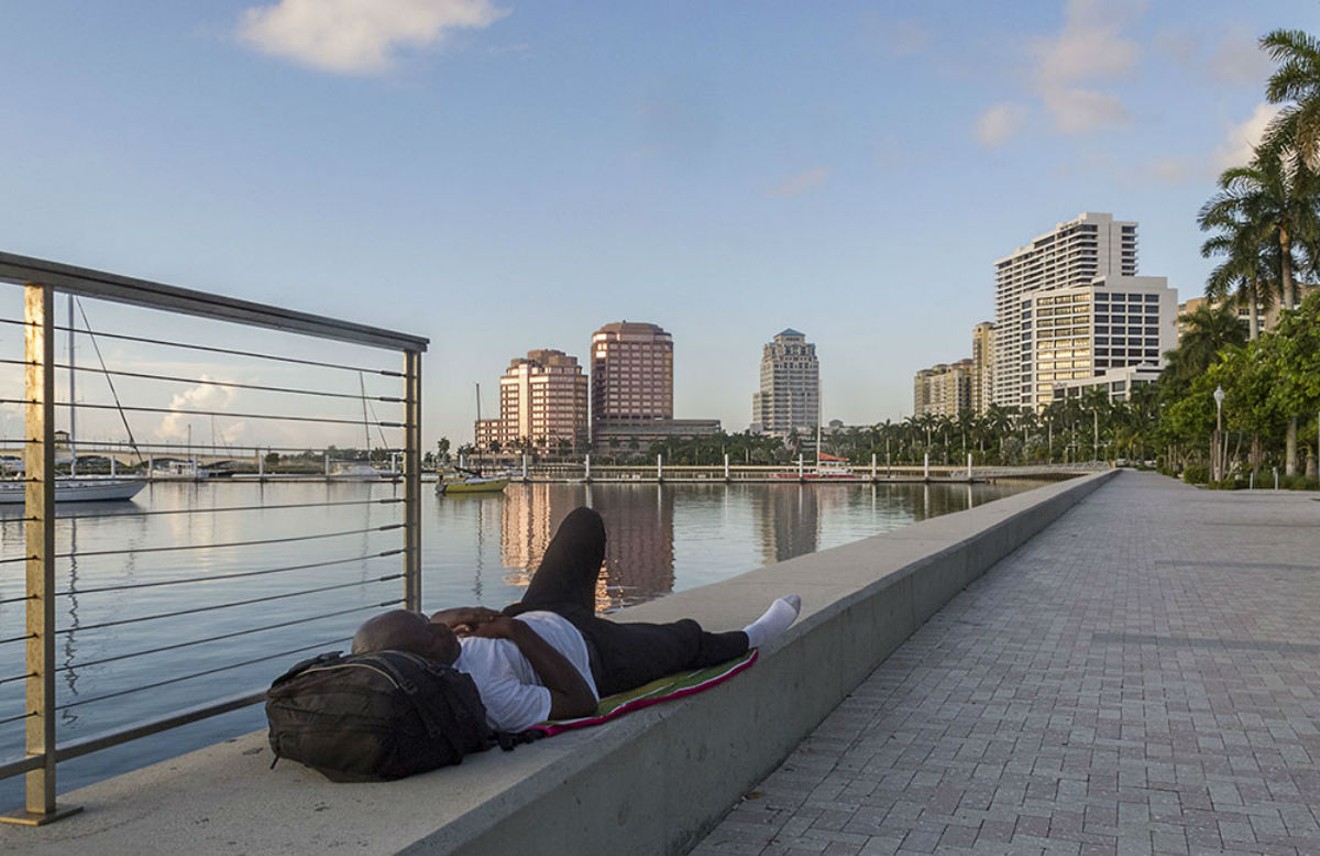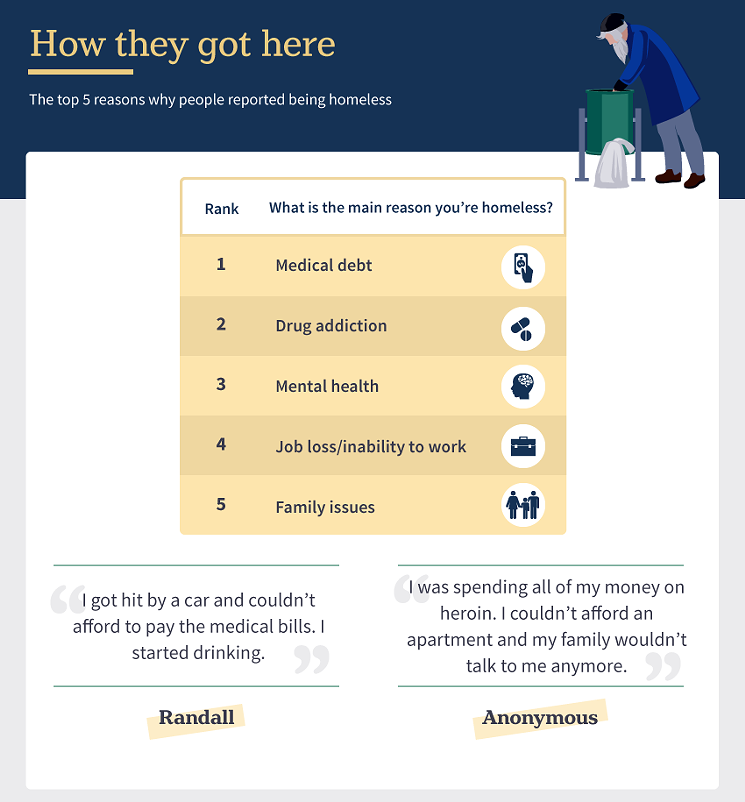Late last month, a time that already feels like a million years ago in the Trump Era, the GOP once again gave Obamacare repeal the ol' college try. As proposed, the Graham-Cassidy bill could have stripped health-care coverage from 15 percent of Floridians. Thankfully for those 3.2 million people, the Senate Republicans' latest attempt was squashed when Arizona Sen. John McCain refused to pledge his support.
But even with Obamacare intact, many Floridians remain vulnerable without health insurance. Census surveys say the Sunshine State has one of the highest uninsured populations in the nation, and of the top 25 metro areas, Miami ranks in the bottom three for health-care coverage. Among the local homeless population, medical debt now tops the list of reasons people end up on the streets, according to a new survey in Broward and Palm Beach Counties.
In fact, the top three reasons people in South Florida become homeless are all medical-related issues. Drug addiction and mental health rank just below medical debt on the list:
The stats come from addictions.com, where survey takers conducted in-person interviews with 32 homeless people in Broward and Palm Beach this past July. Overwhelmingly, interviewees said they'd been financially crippled by hospital bills they couldn't pay or an addiction they couldn't kick on their own.
"I got hit by a car and couldn’t afford to pay the medical bills. I started drinking," said one man plagued by both issues.
Nearly three-quarters of the group said they used drugs or alcohol, spending anywhere from $6 to $30 per day on their drug of choice. But nearly all of them regretted it: Asked what they would do differently if given a second chance, the majority of respondents said they wished they'd never started using.
As of this summer, Broward County's homeless population had grown 6 percent from the previous year. To many, living on the streets can be risky — 42 percent said they'd suffered a head injury, while 33 percent said they'd been beaten at one point while homeless. Constant exposure to that kind of trauma is not only bad for the health and wellbeing of the homeless, but also costly in terms of emergency room care.
In many states, the homeless have been helped by Medicaid expansion, which has allowed many to receive health care for the first time in years. Unfortunately, that's not the case in Florida, where state leaders have refused to expand the program to cover 650,000 low-income residents.
"Participants from the non-expansion site [Florida] indicated that their patients remain uninsured and are continuing to face significant gaps in care that contribute to poor health outcomes," researchers at the Kaiser Family Foundation concluded.
[
{
"name": "Air - MediumRectangle - Inline Content - Mobile Display Size",
"component": "19274298",
"insertPoint": "2",
"requiredCountToDisplay": "2"
},{
"name": "Editor Picks",
"component": "17482312",
"insertPoint": "4",
"requiredCountToDisplay": "1"
},{
"name": "Inline Links",
"component": "18711090",
"insertPoint": "8th",
"startingPoint": 8,
"requiredCountToDisplay": "7",
"maxInsertions": 25
},{
"name": "Air - MediumRectangle - Combo - Inline Content",
"component": "17482310",
"insertPoint": "8th",
"startingPoint": 8,
"requiredCountToDisplay": "7",
"maxInsertions": 25
},{
"name": "Inline Links",
"component": "18711090",
"insertPoint": "8th",
"startingPoint": 12,
"requiredCountToDisplay": "11",
"maxInsertions": 25
},{
"name": "Air - Leaderboard Tower - Combo - Inline Content",
"component": "17482313",
"insertPoint": "8th",
"startingPoint": 12,
"requiredCountToDisplay": "11",
"maxInsertions": 25
}
]













